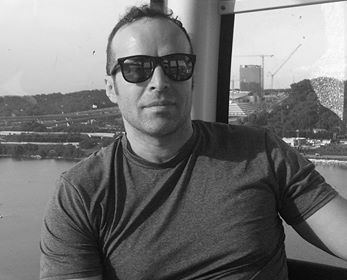About
Mark Maarder is an American composer and poet. Born in the former Soviet Union, he studied music and literature in Europe and in America and lived in numerous countries.
Starting his musical education at the age of six, Mark studied theory of music, piano, and violin with Vladimir Mevius for the next ten years. As a teenager, he moved to the United States, where he studied with Randall Woodfield.
Mark Maarder has worked with musicians from all over the world, his compositions have been performed and recorded both in Europe and the United States, and his videos have received millions of views.
Just like his music, Mark's poetic style ranges from classical to modern. Sometimes unabashedly simplistic, sometimes strongly allegorical, most of his poems contain a clearly identifiable rhythmic structure which complements the meaning of the words. Mark has also translated many works from other languages into English. His translations strive to achieve the difficult balance between remaining close to the original text and, at the same time, eloquently conveying the meaning in a different language.
While varied structurally and stylistically, Mark Maarder's music and poetry always reflect that which is unique about him - his multicultural upbringing, his diverse education, and his profound experiences.
